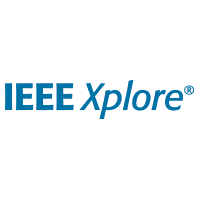ieeexplore.ieee.org/document/9001063
Preview meta tags from the ieeexplore.ieee.org website.
Linked Hostnames
2Thumbnail

Search Engine Appearance
Responsible AI—Two Frameworks for Ethical Design Practice
In 2019, the IEEE launched the P7000 standards projects intended to address ethical issues in the design of autonomous and intelligent systems. This move came amidst a growing public concern over the unintended consequences of artificial intelligence (AI), compounded by the lack of an anticipatory process for attending to ethical impact within professional practice. However, the difficulty in moving from principles to practice presents a significant challenge to the implementation of ethical guidelines. Herein, we describe two complementary frameworks for integrating ethical analysis into engineering practice to help address this challenge. We then provide the outcomes of an ethical analysis informed by these frameworks, conducted within the specific context of Internet-delivered therapy in digital mental health. We hope both the frameworks and analysis can provide tools and insights, not only for the context of digital healthcare but also for data-enabled and intelligent technology development more broadly.
Bing
Responsible AI—Two Frameworks for Ethical Design Practice
In 2019, the IEEE launched the P7000 standards projects intended to address ethical issues in the design of autonomous and intelligent systems. This move came amidst a growing public concern over the unintended consequences of artificial intelligence (AI), compounded by the lack of an anticipatory process for attending to ethical impact within professional practice. However, the difficulty in moving from principles to practice presents a significant challenge to the implementation of ethical guidelines. Herein, we describe two complementary frameworks for integrating ethical analysis into engineering practice to help address this challenge. We then provide the outcomes of an ethical analysis informed by these frameworks, conducted within the specific context of Internet-delivered therapy in digital mental health. We hope both the frameworks and analysis can provide tools and insights, not only for the context of digital healthcare but also for data-enabled and intelligent technology development more broadly.
DuckDuckGo
Responsible AI—Two Frameworks for Ethical Design Practice
In 2019, the IEEE launched the P7000 standards projects intended to address ethical issues in the design of autonomous and intelligent systems. This move came amidst a growing public concern over the unintended consequences of artificial intelligence (AI), compounded by the lack of an anticipatory process for attending to ethical impact within professional practice. However, the difficulty in moving from principles to practice presents a significant challenge to the implementation of ethical guidelines. Herein, we describe two complementary frameworks for integrating ethical analysis into engineering practice to help address this challenge. We then provide the outcomes of an ethical analysis informed by these frameworks, conducted within the specific context of Internet-delivered therapy in digital mental health. We hope both the frameworks and analysis can provide tools and insights, not only for the context of digital healthcare but also for data-enabled and intelligent technology development more broadly.
General Meta Tags
12- titleResponsible AI—Two Frameworks for Ethical Design Practice | IEEE Journals & Magazine | IEEE Xplore
- google-site-verificationqibYCgIKpiVF_VVjPYutgStwKn-0-KBB6Gw4Fc57FZg
- DescriptionIn 2019, the IEEE launched the P7000 standards projects intended to address ethical issues in the design of autonomous and intelligent systems. This move came a
- Content-Typetext/html; charset=utf-8
- viewportwidth=device-width, initial-scale=1.0
Open Graph Meta Tags
3- og:imagehttps://ieeexplore.ieee.org/assets/img/ieee_logo_smedia_200X200.png
- og:titleResponsible AI—Two Frameworks for Ethical Design Practice
- og:descriptionIn 2019, the IEEE launched the P7000 standards projects intended to address ethical issues in the design of autonomous and intelligent systems. This move came amidst a growing public concern over the unintended consequences of artificial intelligence (AI), compounded by the lack of an anticipatory process for attending to ethical impact within professional practice. However, the difficulty in moving from principles to practice presents a significant challenge to the implementation of ethical guidelines. Herein, we describe two complementary frameworks for integrating ethical analysis into engineering practice to help address this challenge. We then provide the outcomes of an ethical analysis informed by these frameworks, conducted within the specific context of Internet-delivered therapy in digital mental health. We hope both the frameworks and analysis can provide tools and insights, not only for the context of digital healthcare but also for data-enabled and intelligent technology development more broadly.
Twitter Meta Tags
1- twitter:cardsummary
Link Tags
9- canonicalhttps://ieeexplore.ieee.org/document/9001063
- icon/assets/img/favicon.ico
- stylesheethttps://ieeexplore.ieee.org/assets/css/osano-cookie-consent-xplore.css
- stylesheet/assets/css/simplePassMeter.min.css?cv=20250812_00000
- stylesheet/assets/dist/ng-new/styles.css?cv=20250812_00000
Links
17- http://www.ieee.org/about/help/security_privacy.html
- http://www.ieee.org/web/aboutus/whatis/policies/p9-26.html
- https://ieeexplore.ieee.org/Xplorehelp
- https://ieeexplore.ieee.org/Xplorehelp/overview-of-ieee-xplore/about-ieee-xplore
- https://ieeexplore.ieee.org/Xplorehelp/overview-of-ieee-xplore/accessibility-statement